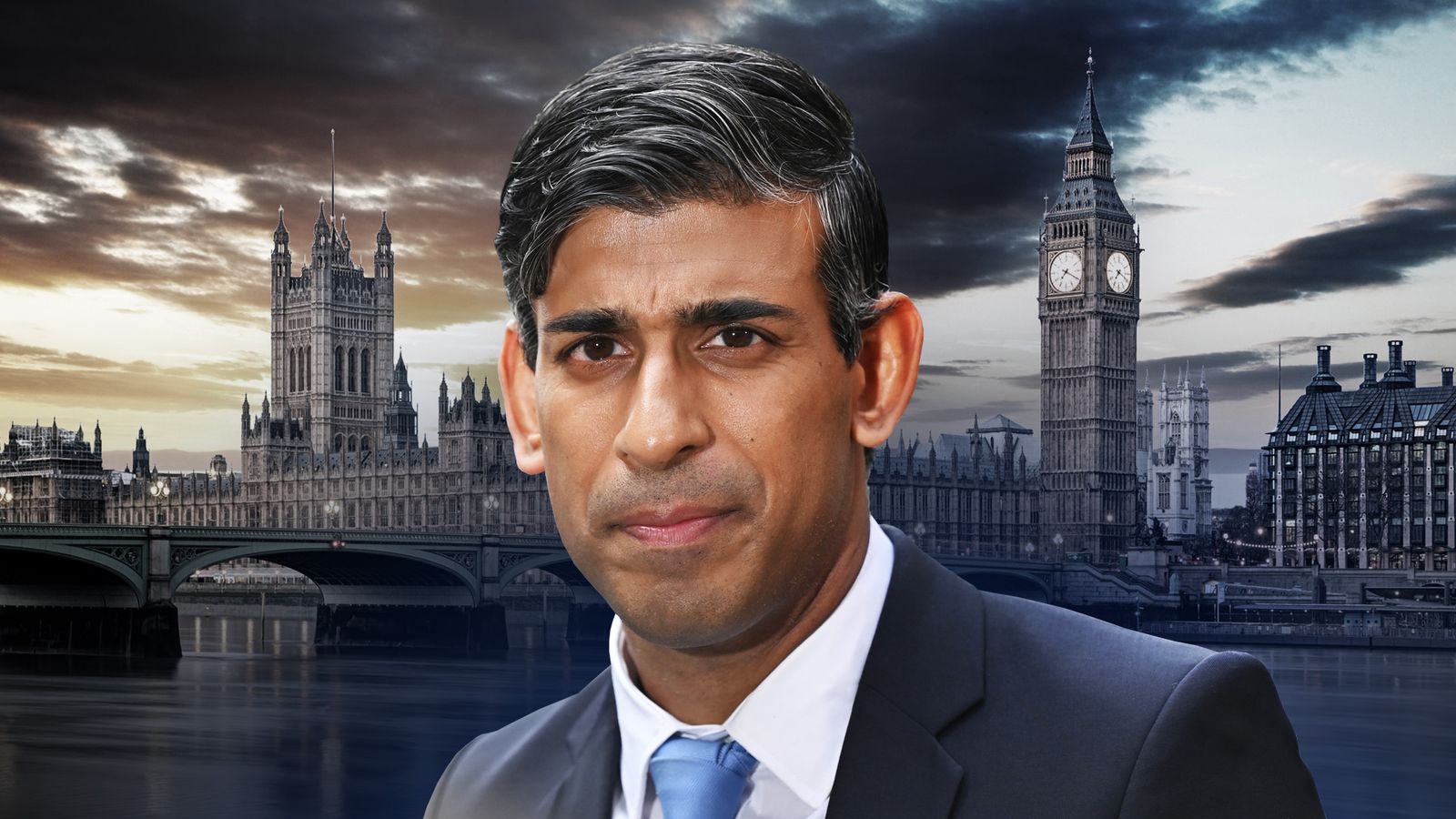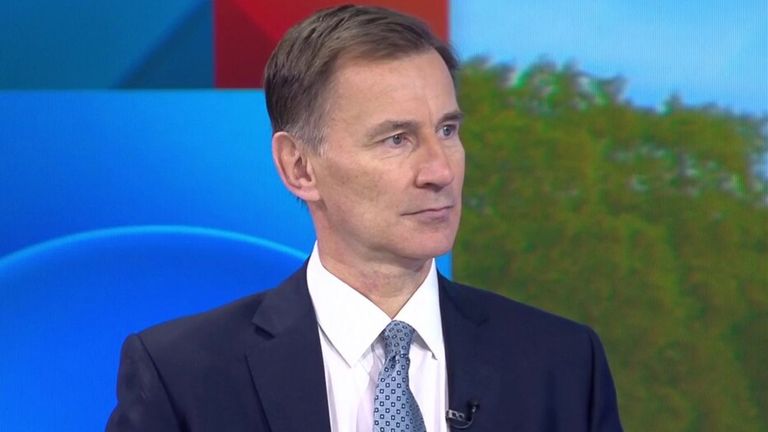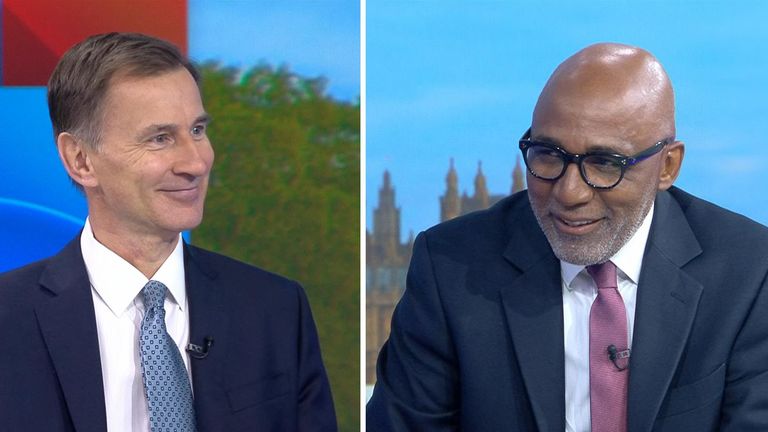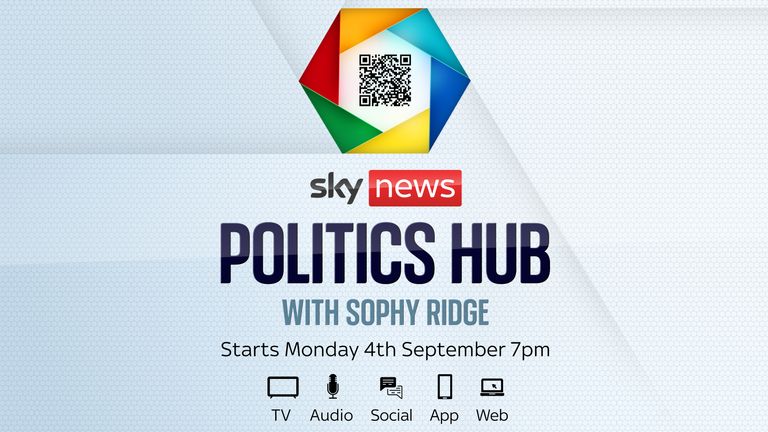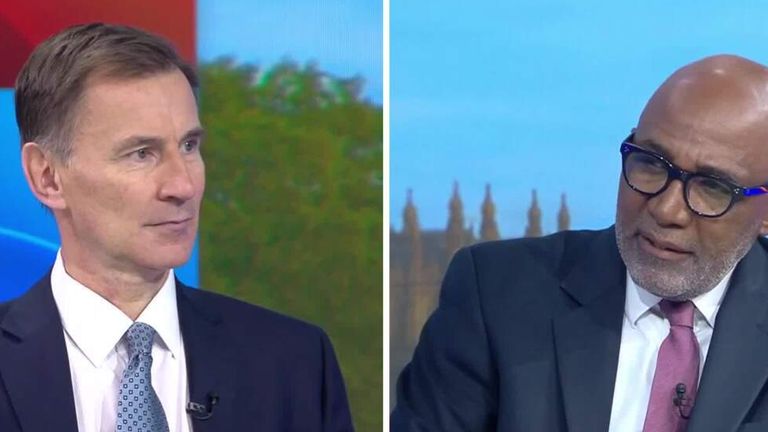Rishi Sunak will be under increased pressure as MPs return to Westminster on Monday after their summer recess.
The prime minister has been accused of presiding over a “zombie parliament” – not just by Labour, as would be expected, but in a parting shot by Nadine Dorries, who has finally vacated her seat of Mid Bedfordshire – triggering another by-election in a safe Tory seat.
It comes as a new crisis has unfolded in England’s schools, with more than 100 being told they would either be forced to shut or partially close over fears about the type of concrete used in their buildings.
On top of that, Saturday saw the highest number of migrant Channel crossings so far this year.
The timing could not be worse for Mr Sunak, whose director of communications, Amber de Botton, resigned on Friday after less than a year in the role and with a general election looming around the corner.
The prime minister is under more pressure to make progress on his five pledges or else risk his backbenchers becoming increasingly agitated.
He faces pressure, too, from the opposition benches, with Labour accusing the government of being “unable to deliver its own agenda”.
The government’s Online Safety Bill had been “drastically watered down”, according to the opposition, who accused the prime minister of being “too weak” to pass the original legislation.
Labour says several pledges including reform of the Mental Health Act and of the audit system could be left out of the upcoming King’s Speech entirely.
Here, Sky News takes a look at the key problems in the prime minister’s in-tray.
Concrete crisis
After years of disruption caused by the COVID pandemic and more recently teacher strikes, parents are braced for yet more home-schooling after the Department for Education announced more than 100 schools would either have to close or partially close due to the use of reinforced autoclaved aerated concrete, known as RAAC.
Around 104 schools or “settings” will be disrupted on top of 50 that have already been affected this year.
The department said the vast majority of schools and colleges “will be unaffected” – but Labour criticised the move as a “staggering display of Tory incompetence”.
And in an interview on Sky News’ new politics show, Sunday Morning with Trevor Phillips, Chancellor Jeremy Hunt admitted more schools and other public buildings with structural problems could come to light as the government carries out its “exhaustive” programme into the problem.
“Obviously we might find new information in the weeks or months ahead and we will act on it, but in terms of the information we have today we have acted immediately, we will continue to act, we will continue to invest,” he said.
Record boat numbers
One of Mr Sunak’s five pledges – to stop migrant boat crossings in the Channel – is also under serious doubt after a summer of setbacks.
The prime minister has already had to contend with the fact that more than 100,000 people have made the crossing since records began in 2018 – a milestone he certainly does not want to be associated with.
A bad situation was made worse when the latest round of Home Office figures showed 872 people were detected crossing the Channel in small boats yesterday – the highest number on a single day so far this year.
The Saturday figure has taken the total to arrive so far this year to 20,973.
It prompted Labour to accuse Mr Sunak of having “badly broken his promise on small boats”.
Rising cost of living
The most consistent problem Mr Sunak has had to contend with is the cost of living crisis, where high inflation is eroding people’s pay packets.
Mr Sunak has pledged to halve inflation, which currently stands at 6.8%, by the end of the year – which some in his party feel has made him a hostage to fortune.
While the government has been buoyed by figures from the Office for National Statistics (ONS) which showed the UK’s economy was 0.6% larger than pre-pandemic levels by the fourth quarter of 2021, there are no signs yet the pressure has eased up on people’s pockets.
Energy watchdog Ofgem has warned that while the energy price cap is going to fall in October, families are “absolutely going to struggle” with their bills this winter as its boss urged the government to bring back support for families.
A typical household paying by direct debit for gas and electricity will face an annual charge of £1,923 from October to December, a fall of about £150.
Despite that, millions of households could end up paying more because government support with bills – worth £66 a month – has now been withdrawn.
Reflecting the tough economic situation is the fact that junior doctors and consultants have agreed to go on strike for the first time in NHS over four days across September and October – coinciding with Mr Sunak’s first Tory conference as leader and prime minister.
Tata talks
Sky News revealed this week the government is in advanced talks with Britain’s biggest steel producer to hand over a £500m aid package aimed at securing the long-term future of steelmaking in South Wales.
Whitehall officials and Tata Steel are close to agreeing a deal that would commit more than £1bn to the future of its Port Talbot steelworks – but which could ultimately result in thousands of job losses.
Under the plans currently envisaged, the government would commit approximately £500m of public funding to the company, while Tata Steel’s Indian parent would sign off £700m of capital expenditure over a multi-year period.
Port Talbot employs about 4,000 people – roughly half of Tata Steel’s overall UK workforce of approximately 8,000.
Industry sources close to the discussions said the company had indicated that over the long term, as many as 3,000 of its British-based staff were likely to lose their jobs.
Mr Hunt was challenged about the package by Trevor Phillips on Sunday, who asked whether the government was propping up an industry the government knows can’t compete with China.
Mr Hunt hit back by arguing the UK “can certainly compete with China”.
He said: “We are the world’s second-largest colleagues offshore wind producer and when it comes to high-end manufacturing, as opposed to the very low-cost manufacturing, we have four of the world’s top 10 universities, amazing research and development happening here.
“And we have a British economy that is a global leader when it comes to life sciences, technology or arts manufacturing.”
